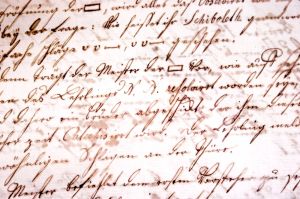 As with most infractions – intentional plagiarism isn’t often a singular event. If someone plagiarizes and gets away with it, they are very likely to do it again because no negative reinforcement has emerged to block their actions. In fact, they are rewarded by their actions because they end up doing less work and getting all the credit for it.
As with most infractions – intentional plagiarism isn’t often a singular event. If someone plagiarizes and gets away with it, they are very likely to do it again because no negative reinforcement has emerged to block their actions. In fact, they are rewarded by their actions because they end up doing less work and getting all the credit for it.
There are likely ‘plagiarism trails’ that follow these bad apples from job to job and paper to paper over the course of history. Most often though, the plagiarism trail catches up to them. One recent case of a multiple infraction plagiarizer came out of two competing local New Hampshire newspapers. The editor of the Claremont Eagle Times, Roger Caroll, caught competing sports editor Joe Milliken in the act. Although Milliken apologized to Caroll after he contacted him, that didn’t prevent Caroll from publishing a front page story to expose Milliken’s illicit actions.
Beyond exposing this singular incident, Caroll also noted that other journalists had told him that “Milliken’s been taking their stuff out of other papers and passing it off as his own for years.” This condemnation will likely put Milliken out of work for the count, and also may have repercussions to his entire organization.
If Milliken has been plagiarizing articles for many years, it’s quite a shame that it wasn’t caught earlier. It took human intuition (Caroll discovering the similarities) to ferret out the duplicate materials. The regular utilization of plagiarism detection software could have prevented any foul play all together.
Digging into an individual’s ‘plagiarism history’ doesn’t always end up badly for them, however. Another recent examination of plagiarism ended up favoring the accused plagiarizer: Charles Darwin. Of course, this case looks much further into the past.
There has always been speculation that Charles Darwin’s most famous work – On the Origin of Species – took some central ideas, including the theory of evolution itself, from a competing naturalist named Alfred Wallace. Recently, researchers from the National University of Singapore were able to clear Darwin’s name by examining the shipping timetables in which the two scientists corresponded on research via written letters. One integral piece of evidence that favored Darwin’s accusers was debunked, the fact that a letter from Wallace arrived a month before Darwin claimed he received it.
Although in this case getting to the root of the evidence required some extemporaneous methods – the truth was still uncovered even after an extended period of time. Eventually past plagiarism catches up to the present. Today, this time span is far shorter and in some cases in ‘real-time,’ due to advances in plagiarism checker technologies.
Citations
Silverman, Craig. “NH editor’s front page column calls out competitor for plagiarism.” Poynter.org. March 16th 2012. http://www.poynter.org/latest-news/regret-the-error/166724/new-hampshire-editors-front-page-column-calls-out-competitors-sports-editor-for-plagiarism/
Woollacott, Emma. “Darwin cleared of plagiarism at last.” TGDaily.com. DD&M Inc. http://www.tgdaily.com/general-sciences-features/61974-darwin-cleared-of-plagiarism-at-last
Related
Topics: Current Events